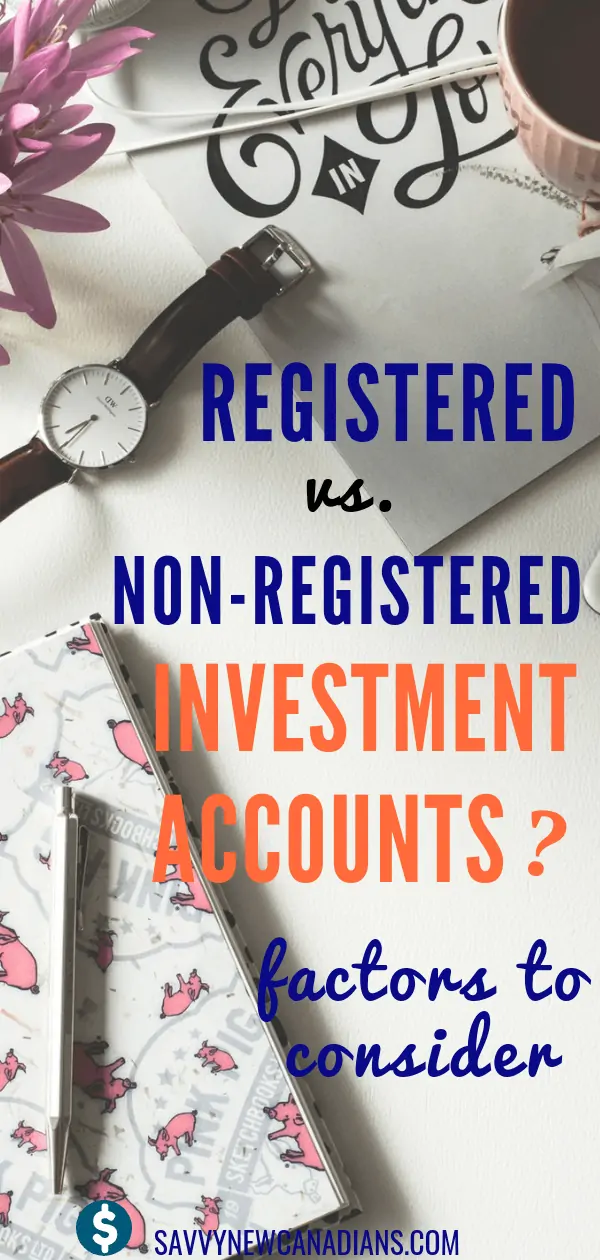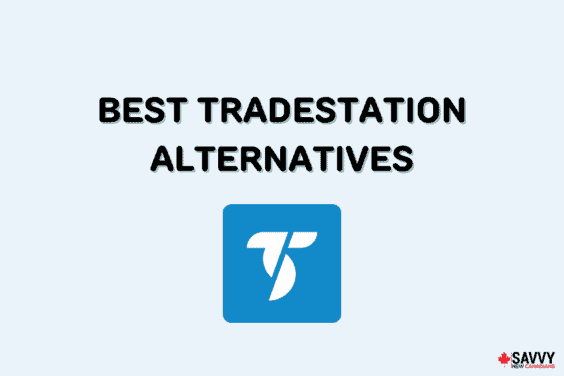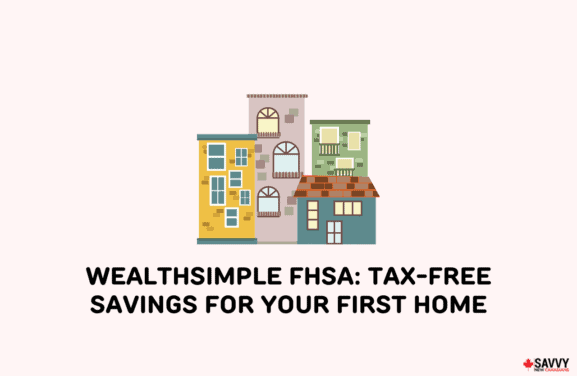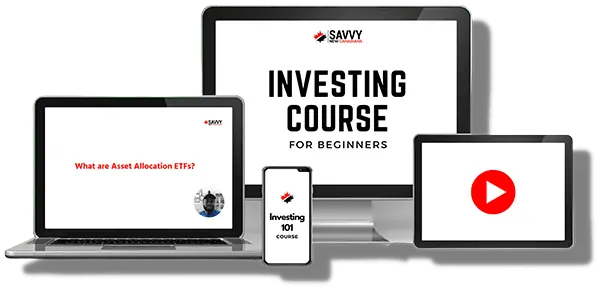Some readers of this blog have asked me on different occasions what investment accounts they should invest in and when to utilize a registered vs. a non-registered account.
Should I put money in my RRSP or first maximize my TFSA?
What is the difference between registered and non-registered accounts and what are the advantages/disadvantages of choosing one over the other?
While Canadians generally recognize that they should be putting money aside for retirement, their kid’s education, and so on, a variety of account choices (and individual financial circumstances) means they may need to pick one or a combination of accounts.
Registered vs. Non-Registered Investment Accounts
A registered account is an investment account that is given tax-deferred or tax-sheltered status by the government. Income earned on the account is not taxed until withdrawal or, in the case of a TFSA, is never subject to taxation.
To ensure that registered accounts are used for their intended purposes, the government puts rules in place that must be followed if an investor wants to avoid getting penalized. Examples of registered accounts in Canada include RRSP, RESP, TFSA, and RRIF.
A non-registered account does not enjoy the same tax-sheltered status as its registered counterpart. It is a general investment account where you can invest in a wide range of assets and are required to pay taxes annually on income generated by the account.
Choosing Between a Registered vs. Non-Registered Account
The choice between a registered account vs. a non-registered one depends on a host of factors, including:
- Your marginal tax rate now and in retirement
- The types of assets you plan to invest in
- The nature of returns (dividends, capital gains, interest income)
- The amount you plan to invest and your investing purpose (retirement savings, short-term project funding, kid’s college tuition)
- Whether you have maxed out your registered plans
- Age limits for the account, if applicable
Registered Retirement Savings Plan (RRSP)
Each year you can contribute to an RRSP based on a percentage of your previous year’s earned income and up to a maximum amount. Your contribution amount lowers your taxable income, resulting in tax savings (tax refund).
Income earned on your account is tax-deferred until you start withdrawing from the account in retirement. At this time, tax is due at your marginal tax rate, which is likely to be lower than what it was during your working years.
When you withdraw from your RRSP (outside of the Home Buyers’ or Lifelong Learning Plans), you lose that portion of your contribution room permanently. Unused contribution room can be carried forward indefinitely, and there are penalties for contributing more than you are allowed.
Since income earned on your RRSP continues to compound tax-free, these additional funds can significantly amplify your portfolio returns over time, making the RRSP a great account to grow your retirement pot.
RRSP Tips:
- Most assets work well in an RRSP account. Income-producing assets such as fixed-income securities (bonds) and term deposits (GICs and High-Interest Savings Accounts) are particularly great in RRSP accounts. Because interest income is taxed at your marginal tax rate, it is unfavourable to hold income-generating assets outside a registered plan.
- The greatest benefit is obtained from your RRSP when your marginal tax rate is higher now than it is during withdrawal (or retirement). When you reinvest the tax refund generated by your RRSP contributions, your tax savings and portfolio growth are maximized.
- RRSPs allow you to invest in a spousal account that can be part of an income-splitting strategy to lower your overall family tax burden in retirement.
- Assets held within an RRSP account can be easily re-balanced without having to track capital gains/losses, adjusted cost bases, and the associated tax implications.
- If RRSP assets remain when the plan holder dies, they can be transferred on a tax-deferred basis to an eligible beneficiary.
- The restrictions and penalties associated with an RRSP account may make it easier for less-disciplined investors to stay the course and save for retirement.
Related: How to Generate Income from an RRSP in Retirement
Tax-Free Savings Account (TFSA)
Starting in 2009, the government allowed all eligible individuals over 18 years of age to invest up to a certain amount per year ($6,500 in 2023 and $7,000 in 2024) in a tax-free account. Your TFSA contribution amount does not generate a tax refund.
Like the RRSP, unused TFSA contribution room can also be carried forward indefinitely. However, unlike the RRSP, withdrawals from a TFSA can be re-contributed later.
There is no tax liability when you withdraw funds from your TFSA account, i.e. no tax is payable on income generated by the account. There are penalties for over-contributing to your TFSA.
TFSA Tips:
- Income-producing assets can also be held within a TFSA account to avoid the higher tax rate levied on interest income compared to capital gains and dividends.
- If you are investing/saving money that you plan to withdraw in the short term (for a home down payment, vacation, or emergency funds), a TFSA may be preferable to save on taxes. You can also re-contribute the amount withdrawn as early as the year following the year of withdrawal.
- Want to hold foreign stocks that pay dividends? Apart from the foreign country’s withholding tax, you will not have to pay additional taxes in Canada when they are held within a TFSA.
- OAS Clawback: Income from a TFSA will not count towards the threshold amount at which the government starts to claw back your OAS pension.
- If you do not have “earned” income to generate the RRSP contribution room, a TFSA allows you to save/invest in a registered tax-deferred account using funds sourced from anywhere.
- In most cases, lower-income individuals should first maximize their TFSA before RRSP since their “tax refund” benefit is much lower due to a lower marginal tax rate. In addition, any income from their TFSA will not count towards GIS eligibility in retirement.
Related: All You Need to Know About the TFSA
Registered Education Savings Plan (RESP)
This account is set up to save for your child’s post-secondary education.
To encourage parents/guardians to plan for their kid’s future studies, the government sweetens the deal by chipping in 20 cents for every $1 contribution you make, up to a maximum of $500 in grants per year (and a lifetime maximum of $7,200). This grant is made available through the Canada Education Savings Plan (CESG).
Additional grants are available via the a-CESG and Canada Learning Bond. You can invest up to a maximum of $50,000 per child in an RESP.
RESP contributions are not tax-deductible. Income earned on the account is tax-deferred until your child starts to make withdrawals to pay for college. The money withdrawn is then taxed in their hands at a lower tax rate.
RESP Tips:
- The free government grants guarantee you 20% or more in returns on your RESP investment as soon as they are received!
- If your child chooses not to further their education after high school, you have a few choices on what to do with the accumulated funds.
- Here are some options for investing RESP funds.
Related: All You Need to Know About the RESP
Non-Registered Investment Account
Non-registered accounts have their place in your overall investing strategy.
- If you have already maxed out your registered accounts, a non-registered account helps you to continue investing.
- If you use leverage (loans) to invest, you can deduct any associated interest expense incurred on the loan from income earned before accounting for taxes.
- You can keep investments that generate eligible Canadian dividends and capital gains in your non-registered account. Although these are taxed annually, capital gains and dividends are taxed more favourably than interest income.
- There is more flexibility in a non-registered account – no contribution or withdrawal limits.
- Unlike an RRSP that has to be collapsed when you reach 71 years of age, a non-registered account has no such restrictions.
- You can use capital gains to offset capital losses. Technically, depending on the assets held, you can also defer capital gains indefinitely until whenever you sell your asset holdings.
- Non-registered assets are deemed to be disposed of at the time of death and are taxed accordingly. Unrealized capital gains may be rolled over to an eligible beneficiary (e.g. spouse or common-law partner) and taxed in their hands.
- The investor needs to keep track of transaction costs, capital gains and losses to determine their income-tax liability at tax time.
Closing Thoughts
In my opinion, the most ideal situation would be one in which an investor owns both registered and non-registered accounts.
You max out your registered (RRSP, TFSA, and RESP) accounts and still have funds invested within a non-registered plan. Of course, not many people have enough funds to put into all these investment “buckets.”
A young and new entrant into the workforce who is starting out on an entry-level salary may want to use up their TFSA room before contributing to an RRSP (except in a scenario where they have an employer-matching pension plan).
A senior who is nearing retirement and whose income may qualify them for GIS should consider investing in a TFSA, which would not count towards the income threshold. Non-taxable income from a TFSA can also limit how much OAS is clawed back.
Seniors over the age of 71 can no longer contribute to an RRSP, but a TFSA or non-registered account can still be utilized.
An investor with all three accounts (RRSP, TFSA, and non-registered) can look at keeping their income-earning assets within a TFSA/RRSP and assets that generate capital gains/dividends within a non-registered account or TFSA in order to minimize their overall tax liability.
Accounting for income, dividends, and capital gains for tax purposes can get complicated really quickly. Investors who cannot be bothered with tracking adjusted cost bases (ACB) and the like would find investing within registered accounts to be easy peasy.
You may also like:
- Best Dividend ETFs in Canada
- The Place of Bonds in Your Investment Portfolio
- Your Complete Pre-Retirement Checklist
- Investment Risks You Should Know
- How Behavioural Biases Impact Your Investing
- High-Interest Savings Accounts in Canada








Hi @ LOBNa: There are many options for opening a non-registered account. A few low-fee options in the form of robo-advisors may also be able to offer free limited financial planning/advice to ensure you have your ducks in a row.
You can check out my review of two popular robo-advisors in Canada here:
https://www.savvynewcanadians.com/wealthsimple-review/
https://www.savvynewcanadians.com/wealthbar-review/
Cheers!
Hi Enoch, if one has never invested outside of registered accounts, is there any reason to worry about ACB? As you said, that looks like something that would get out of hand pretty quickly. What happens when you convert an RRSP to a RIF? Still no issues? And secondly, assume one retires before 65. If RRSP money were to be withdrawn from the account to make up a shortfall in a time of need, would that result in needing to suddenly figure out ACB?
Thanks.
It seems most questions plunked into google eventually lead to here, so, well done.
@Rey: Good question and thanks for your feedback!
ACB calculations do not apply to assets held in a registered account e.g. RRSP or TFSA. This is because you do not pay capital gains tax and cannot claim capital losses. When you make a withdrawal from your RRSP, the entire amount is considered as taxable income and taxed at your marginal tax rate. The only time this does not apply is for the Home Buyers Plan and Lifelong Learning Plan.
Some posts that you may find useful:
https://www.theglobeandmail.com/globe-investor/investor-education/the-abcs-of-tracking-your-acb/article17838427/
https://www.adjustedcostbase.ca/blog/should-rrsp-and-tfsa-transactions-be-included-when-calculating-acb/
Hi Enoch, I hope all is well. I’m trying to figure out the most tax efficient place to hold US stocks and/or US ETFs. I make under $50,000 per year and through my research I’ve found that it’s best not to contribute to an RRSP at this point. But many people say that holding US stocks/ETFs in one’s RRSP is a good strategy because of the exemption on withholding taxes. But, some people are saying that you can get US withholding taxes back if you hold the stocks in a non-registered account? Is this true? Thanks for your help!
@Vanessa: There is some truth to the points you have raised re. RRSP and non-registered accounts. These posts below shed more light on how the foreign withholding tax works:
https://www.investmentexecutive.com/newspaper_/strategies/etfs-and-foreign-withholding-taxes/
https://www.fool.ca/2019/09/19/rrsp-investors-this-simple-rule-can-increase-your-dividend-income/
Mind you, when it comes to investing, you should be considering more than just the FWT. You should also look at management fees, your investment horizon, and risk tolerance.
Do you still have room in your TFSA? It generally makes sense to first maximize your TFSA account if your income in retirement is likely going to be lower than the average income you earned during your working years. If your income is less than $50K, it usually makes sense to max out your TFSA first.
https://www.savvynewcanadians.com/tfsa-vs-rrsp-factors-to-consider/
https://www.savvynewcanadians.com/when-you-should-prioritize-tfsa-over-rrsp/
I thank you because the article has told me something new. I really didn’t know this ……………. The way you explain is very easy to understand.
@David: Awesome – happy to hear!
Is there any benefit of starting to fund a non-reg account prior to maxing out RRSP? Let’s assume TFSA is maxed out and the person is mid 30s with 150k income.
@Kiki: I can’t think of any benefits that will beat the tax-deferred returns you can generate with the RRSP.
Outside of your question (you have maxed out TFSA), if one were choosing between an RRSP and TFSA, these articles may help:
https://www.savvynewcanadians.com/when-you-should-prioritize-tfsa-over-rrsp/
https://www.savvynewcanadians.com/tfsa-vs-rrsp-factors-to-consider/
Hi Enoch,
Great website, a lot of useful info and tips.
I’d be interested to know your thoughts on non-registered vs rsp for a medium term investment. Myself and my spouse have maxed out our tfsa’s and make regular rsp contributions for longer term investment.
We have additional savings (just under 100k) beyond rainy day cash which we are thinking of using for an investment property purchase or business venture within the next 5 years.
We were considering putting these funds in a non-reg account as an rsp would incur withholding on and withdrawal. Our income bracket is similar so the investment would be split down the middle in two joint margin accounts.
Would you give your thoughts on whether you agree this would be the best option or should we be considering a different strategy?
Thanks,
Bryan
@Bryan: If I was in your shoes, I would consider using a non-reg account as you have mentioned. And, for a 5-year or less project in the current climate, I would also probably go for a GIC or other money-market instrument. However, both the RRSP and non-reg would result in taxes. Taxes on the non-reg would be annual, while RRSP taxes will be due following withdrawal. There may be some tax advantages for the different account types depending on the assets you invest in and your marginal tax rate, but that would take a bit more digging into the numbers.
Hi Thank you for your article, I am learning a lot from here. I am 47 years. And Max out RRSP and TFSA. And I am keeping $50000+ under saving account. I would like to move this money to somewhere efficient investments.
****1) For example,if I open Questrade account, and buy monthly Canadian INDEX ETF. ( dividend will not with DRIP) and not sell all year. Only I have to claim is total dividend for a year?
****2) If I sell after 20 years later, I have to claim that balance of total 20 years investments ?(Sold amount – Buy cost for Total 20 years amount, is this call Capital Gain) ?
**** 3) Can you please recommend any ETF for long term investment apply tax credit ?
Thank you so much for taking the time for sharing your knowledge with us.
Misa
I came across your site and learned a lot about tax benefits on investments in a non-registered account. I heard that dividends for the amount of less than $48,000 in a non-registered account is tax free for individuals who do not have an income, Can you please comment if this statement is accurate or not? Thanks in advance.
@Tony: Yes, that’s right with some caveats. See a breakdown in the links below:
https://financialpost.com/personal-finance/you-can-earn-50k-in-tax-free-dividends-but-theres-a-catch-you-cant-have-a-job
https://www.theglobeandmail.com/globe-investor/investment-ideas/strategy-lab/dividend-investing/you-do-the-math-almost-50000-in-earned-dividends-0-in-tax/article4599950/